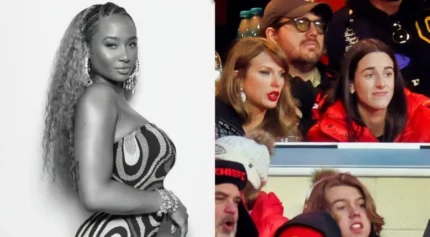Growing Up Milwaukee is a documentary film written and directed by native Tyshun Wardlaw and follows three at-risk teenagers (Tiana Gee, Brandon Haney and Marquell Jenkins) throughout the respective trials of their turbulent young lives.
The Shadow League had the recent opportunity of speaking with Wardlaw about the film she created and why it depicts such an intimate, deep dive into the locality widely recognized as “The Worst City for Black People in America”.
Hyperbole and exaggeration have always been par for the course when describing the lives of Black folks through the words and mediums of the mainstream. Indeed, things will always get lost in translation. It is the nature of mass media. But the fact that a Wisconsin native of African descent is behind the lens does provide a boon toward sincerity and objectivity.
“My motivation to actually create the documentary was because I am a Milwaukee native,” said Wardlaw. “However, I had the opportunity to leave Milwaukee for undergrad. I attended San Jose State University and was gone a few years.”
“I started focusing on the entertainment industry, specifically broadcast. I moved between states, to California, back to Wisconsin, to Illinois and back to Wisconsin. With all this transitioning, there was a lot of bad statistics coming out of the black community in Milwaukee.”
WATCH “Growing Up Milwaukee” Trailer
Home is home, and for some of us, home is smack dab in the middle of a geographically and economically marginalized community. Naturally, it is a sensitive subject to film for many reasons, of which is the risk of misrepresentation. But in the case of Milwaukee, the facts scream for themselves.
“Statistically, it is ranked the worst city for Blacks to live in, we have the highest rates of incarceration for Black and Brown males per capita, also educational and economic disparities,” she continued. “The list goes on. I wanted to be able to humanize the stories that are happening behind the statistics.”
“We wanted to show, from an observational perspective, what are the children in the city of Milwaukee going through and to be able to document that.”
“I went in from an observational perspective as a director. And because this is a documentary I didn’t want to ‘Hollywood’ the story and try to influence the situations to turn how we wanted them to or to only show things that we wanted people to see.”
“We wanted to let the cameras roll to show their authentic, un-edited truth. Because of that, I really didn’t know what we were going to be able to capture in the moment. Were they going to be open and honest with us? Were we going to lose one of our youths while we were filming?”
In Growing Up Milwaukee, there were a plethora of community organizations designed to provide support, guidance and mentorship for young Black and Brown women and men in Milwaukee. What was it like working with these respective organizations and seeing their work firsthand?
“The first one I want to mention is Flood the Hood with Dreams, founded by these two individuals, Muhibb Dyer and Kwabena Nixon. They go to schools, talk to the youth and sometimes they fund projects with their own money to be able to get out to the youth and say ‘I see you; I hear you; I understand you! We’re going to flood the hood with dreams to let you know that you have purpose.’ I was really touched by them, and I knew, after I did the research, that I wanted them involved.”
“Also, True Skool, who I think has been around for about ten years, is out there providing services to children. Whether that’s free help with writing or artistic creativity because they know the artists are there and they want to cultivate that. Unfortunately, the arts programs in the schools are the first to get cut. So, that resonated with me. Also, they have a video component.”
“And there was also Operation Dream, which we saw toward the end of the film, that was highlighted with Brandon. They are an organization that really focuses in on inner city youth and boys. Mentoring them through the summer. I believe they have an academic program as well, even providing them jobs and resources. I really wanted to work with them and was fortunate to be able to highlight them.”
“Also, there was Urban Underground. While I did not get the chance to highlight them, one of their representatives was featured in the film. That’s a program that’s for young women and men who’re kind of going through certain situations and they have a safe haven in Urban Underground.”
Also, Tyshun wanted to give an extra, extra special shoutout to the NBA’s Milwaukee franchise for their involvement in the community as of late.
“The Milwaukee Bucks have been very progressive on the sports end. That’s all Wisconsin is known for really, we love sports. But the Milwaukee Bucks have very progressively been in the social justice movement over the last six years as they have switch management and owners. They understand the power and influence that they have in this city, and in the league. I do want to give a very special shoutout to them because they’re understanding that it is important to have a voice and they’re also partnering with organizations that are helping to make a change.”
“They got the world’s attention in 2020 when they decided to forfeit a game due to an officer-involved shooting in one of the suburbs here in Wisconsin. They took a stance and said: ‘We actually care about the city in which we play.”
Growing Up Milwaukee is currently airing on HBO Max.



